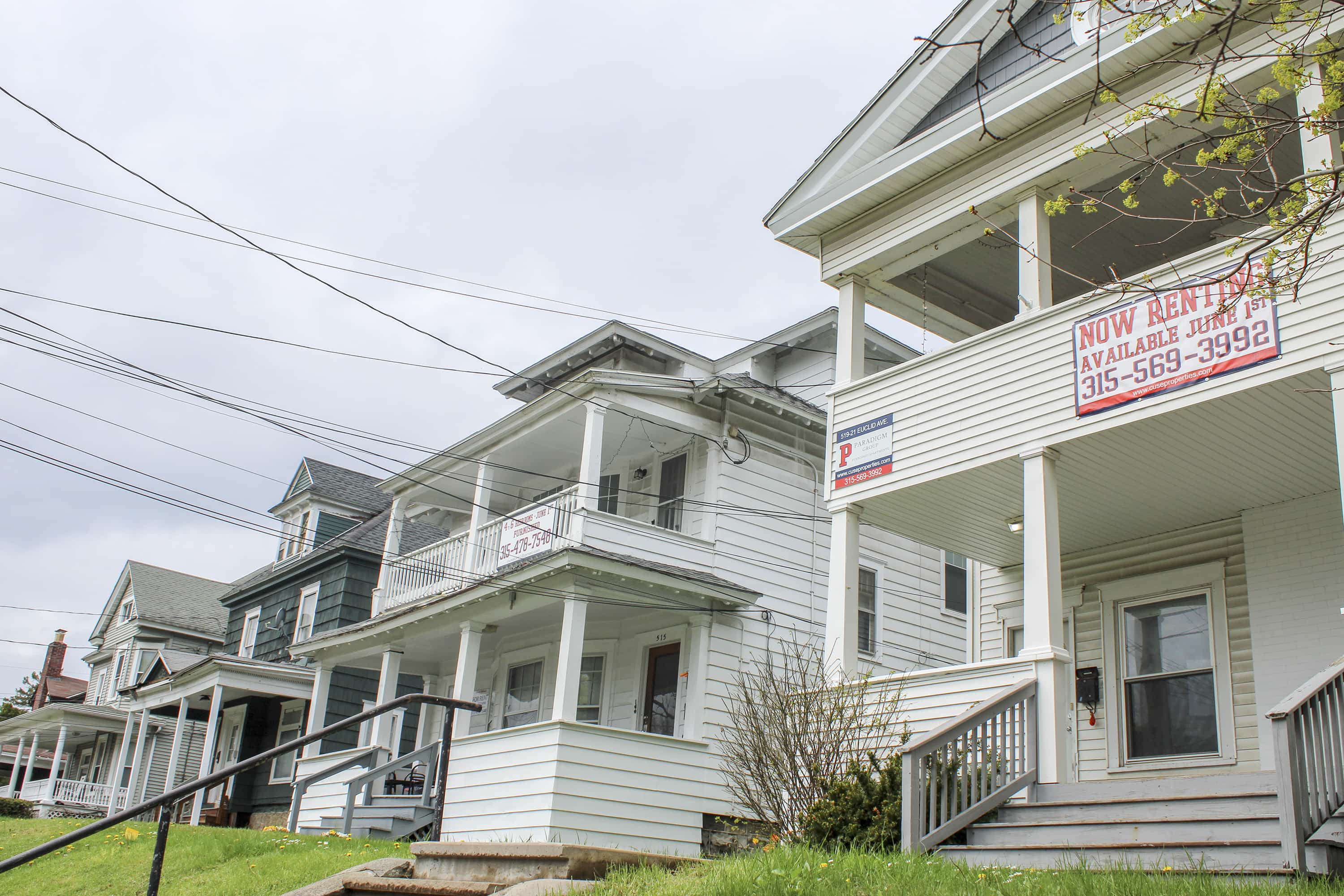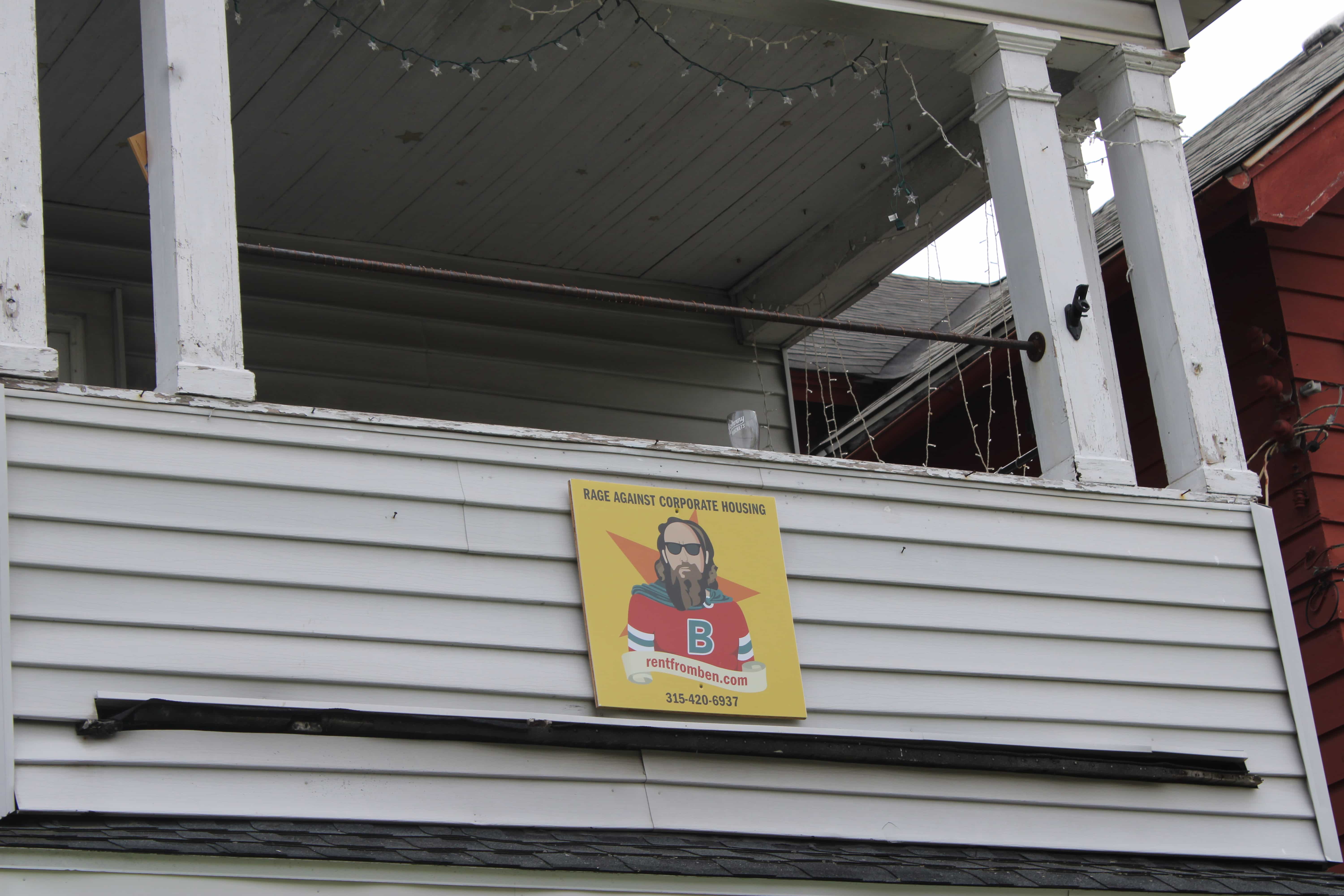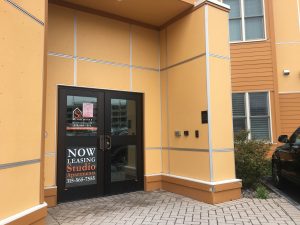University-area landlords defend their livelihoods against luxury
University Neighborhood landlords defend their livelihoods against luxury

In February, Syracuse landlord Ben Tupper still had seven rental properties available for the next school year – the most in 15 years. And that’s after he’d sold off 10 homes out of the 60 that were once a part of his university-area rental portfolio. Tupper’s 50 properties on and around Euclid Avenue denote him as one of the bigger landlords renting to off-campus juniors, seniors and graduate students. His competition, for years, were the other independent landlords who owned the hundreds of houses in the University neighborhood.
His competition changed when The Marshall and The 505 on Walnut opened in time for the 2018-2019 academic year.
The more than 1,000 beds in those two buildings are responsible for the most recent dip in interest in university neighborhood, local landlords said. At The Marshall, students work out in a gym named after SU basketball coach Jim Boeheim. The 505 boasts a pet-washing station. Both are a part of a large-scale increase in luxury student apartments around Syracuse University. As each building sprouts closer to campus and boasts more extravagant amenities, landlords who own the hundreds of early-20th-century homes on Euclid Avenue and its surrounding blocks must now decide how, or whether, to compete.
“It’s real and it’s palpable,” Tupper said of the effects luxury students housing has on his business. “And it’s going to have to have significant impacts on the University neighborhood and landlords.”
Students rent houses based on proximity to campus and living conditions. For decades, the living conditions among the century-old houses were similar: worn, sometimes sticky, wood floors, and indifferent paint jobs. Some of the brick homes had structural damage. But even the better maintained homes were made for families circa World War I, not 21st-century college students.
Insert the luxury apartments. With new carpets, personal bathrooms and increased security, the luxury apartments seemed to better match an SU student population that now pays more than $52,000 a year in tuition alone.
“There’s so many options for the students,” said TJMG Properties’ Erica Laquidara, whose company manages approximately 60 properties within and surrounding the University Neighborhood. “And I think even parents seem to like that ‘Oh, they’re safe in this big building where it’s like a hotel and everything’s new and included.’”
By March, Laquidara had rented roughly half of her properties for the next school year. The units that are renting fastest are either full houses for a group of friends or single apartments. She’s losing the midsized apartments to the new buildings, which offer a lot of two- or four- person suites.
Landlords who own aging homes cannot compete when it comes to amenities. Joshua Podkaminer, who manages six properties in the neighborhood, will install two central air units into homes this year. But what makes his properties desirable are not the add-ons, but the location.
Five of Podkaminers properties are on Euclid or Ostrom avenues, no more than a block from academic buildings, and well inside what competing landlord Tupper refers to as the “inner band.” This section is the first six blocks of Euclid Avenue, heading east and away from campus. What Tupper dubbed the “outer band” begins at Maryland Avenue and radiates out even farther from campus, all the way to Westcott Street.
Tupper theorizes that as the supply of off-campus living grows much faster than its demand, the zone of student-rented houses will shrink. That’s why he sold 10 properties in the last few years. He wanted to eliminate the houses outside what he viewed the desirable zone. Podkaminer, too, recently sold off a property near Barry Park, about a mile away from campus.

In the areas geographically competitive to the luxury apartments, the landlords believe their properties will continue to rent because they appeal to a different market than the apartments. On the weekends, the most popular hip hop songs on Spotify bump through walls as students walk from all over campus to attend house parties . The houses’ features fireplaces, porches, basements and attics. Some of them, like The Pickle – a green Euclid house known for its parties – come with nicknames.
For students who grew up watching “Animal House,” it’s a Euclid house they’ve dreamed of living in, not what Tupper derisively calls a “luxury dorm.”
Syracuse senior Maeve Wurtz is completing her second year living in the Euclid neighborhood. “It’s more laid back,” she said. “All the houses are kind of shitty and run down … the rent’s really cheap, so that’s nice, but it’s just a fun place to live.
“People love the idea of having a big house with all of your friends and having your friends living on the same street as you.”
Wurtz and her friends never considered living in the luxury apartments because most of their friends live in the neighborhood, she said. They named their house Flavortown over the summer, and it’s now how all their friends refer to it. Flavortown doesn’t have 24/7 security, but that also means it doesn’t have workers in their living space all the time. There are no granite countertops, but there is an old house with character.
For students who grew up watching “Animal House,” it’s a Euclid house they’ve dreamed of living in, not what Tupper derisively calls a “luxury dorm.”
Living in the neighborhood feels less corporate and structured, Wurtz said, and that’s what landlords like Tupper appeal too. He’s not going to out-luxury the new apartments. So instead he and the other landlords must make it a war they can win. He hands out shirts with the street names (Euclid, Ostrom, Livingston, Ackerman) and Solo cups imprinted on them. Tupper sells his properties as freedom. The floors will be sticky. The house won’t be perfect. It’s OK to throw a party. That’s how college was meant to be.
Though he’s one of the biggest landlords in the area, Tupper feels small compared to the out-of state corporations running the apartments. He compared the situation to guerrilla warfare. His pockets aren’t as deep, and the tax breaks not as glamorous, so he has to play smarter. He’s consolidating properties and constantly reminding renters why they should rent from the local Syracuse graduate.
A Tupper property on Euclid bears an advertisement for the kind of rental he thinks students should be living in. The ad, which could serve as the flag for Tupper and the landlords’ army, recalls a 1990s band famous for anti-establishment views.
It reads: “Rage against corporate housing.”








